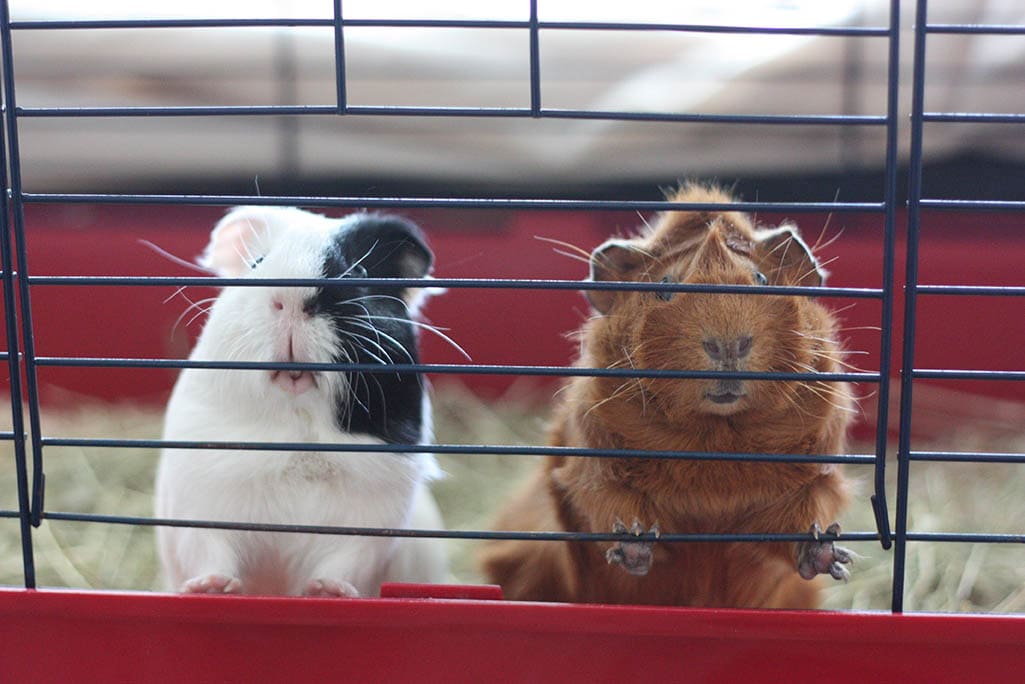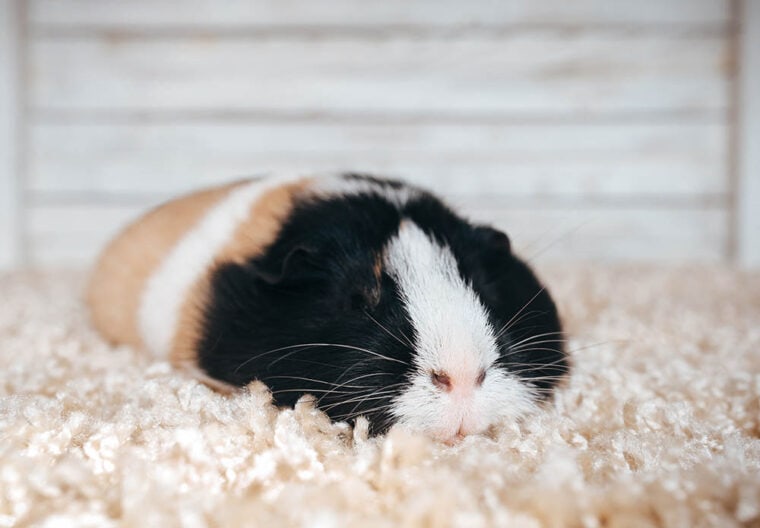
Click to Skip Ahead
Guinea pigs are adorable and sociable creatures that have always managed to captivate us with their unique behaviors and quirks. One question that has long puzzled guinea pig enthusiasts is whether these awesome creatures sleep with their eyes wide open. Are they truly able to rest while keeping a watchful eye on their surroundings?
The answer is both yes and no. Guinea pigs may look like they keep their eyes partially open while they sleep, but it is hard to know whether they are truly sleeping or resting. This is sometimes called “sleeping with one eye open.” While it may seem strange to us, this behavior is actually an adaptation that helps guinea pigs stay alert to any potential dangers around them. However, guinea pigs do need to close their eyes completely during deep sleep to fully rest and maintain normal body functions.
The Science Behind Guinea Pig Sleeping Patterns
To understand why guinea pigs might appear to sleep with their eyes partially open, we need to delve into the science behind their sleep patterns. Guinea pigs do not follow a clear rest-activity circadian rhythm, and they alternate sleep and wake phases throughout the day, not showing preferences for daily sleeping as seen in other rodents.
On the other hand, guinea pigs have a specialized tear gland called the “Harderian gland” located behind their eyes. This gland produces a thick, oily substance that helps keep their eyes moist and protected. This probably helps guinea pigs keep their eyes protected while they keep them open, considering their very low blinking rate – estimated to be around 2 to 5 times every 20 minutes. When guinea pigs sleep, the Harderian gland continues to secrete this oily substance, preventing their eyes from drying out. This enables them to keep their eyes partially open without causing discomfort or irritation.
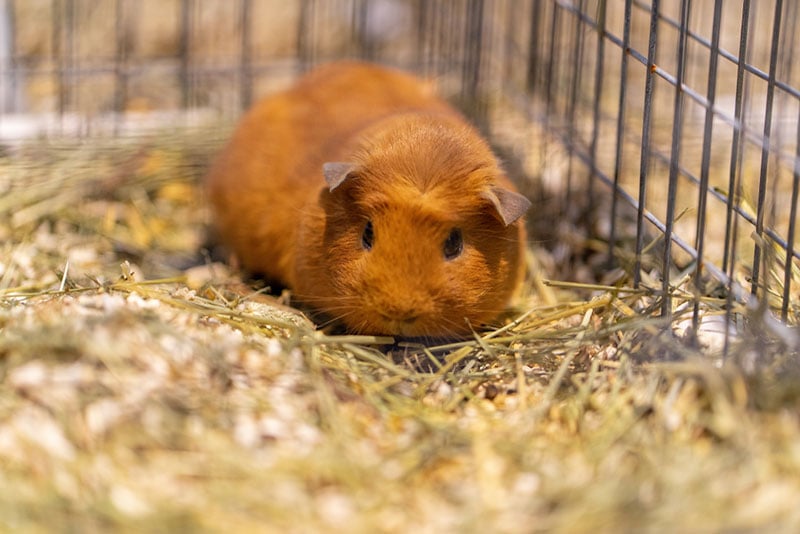
Factors That Affect Guinea Pig Sleep
While guinea pigs have an intermittent sleeping pattern, several factors can affect their rest. Environmental factors such as noise, temperature, and lighting may disrupt their sleep and make them more prone to keeping their eyes closed. Similarly, an uncomfortable or unsuitable sleeping environment can also impact their sleep quality. It is essential to create a calm and peaceful area for your guinea pig to ensure they can rest fully.
Signs of a Sleeping Guinea Pig
Identifying whether a guinea pig is sleeping with their eyes open or closed can be challenging, as their behavior can vary from one individual to another. However, there are a few signs you can look out for to determine if your guinea pig is in a state of deep sleep. During deep sleep, a guinea pig’s body will be more relaxed, and their breathing will be slower and more regular. They will also be less responsive to external stimuli, such as noise or touch. Observing these signs can give you a better idea of your guinea pig’s sleep patterns and whether they are truly snoozing.
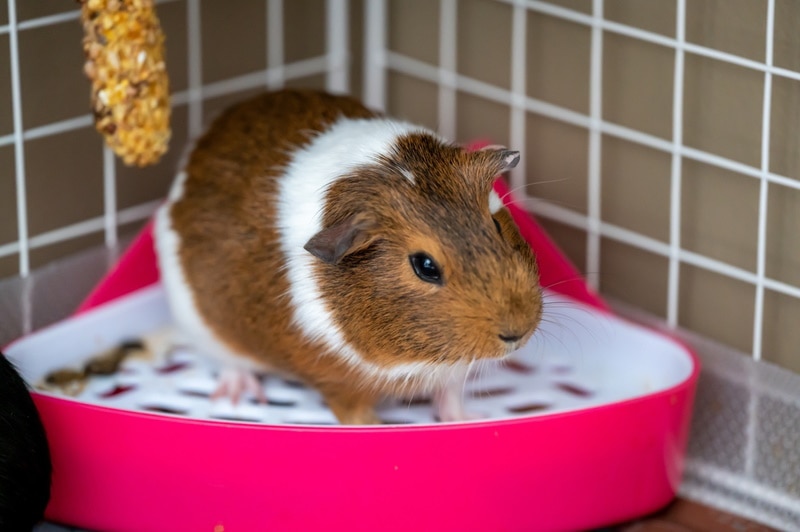
How to Create a Suitable Sleeping Environment for Guinea Pigs
To ensure that your guinea pig gets the restful sleep they need, it is crucial to create a suitable home environment. Start by providing a cozy and comfortable sleeping area, like soft bedding material or a small little hideout. This will give your guinea pig a sense of security and help them feel safe while they sleep. Additionally, consider the temperature and the noise levels in the room where your guinea pig rests.
Common Misconceptions About Guinea Pig Sleep
When it comes to guinea pig sleep, there are several misconceptions that need to be debunked. One common misconception is that guinea pigs are nocturnal animals. While they are crepuscular, meaning they are most active during dawn and dusk, they’re not nocturnal. Guinea pigs can adjust their activity levels based on their environment and the presence of their human companions. Another misconception is that guinea pigs do not need much sleep. Studies have shown that they may spend approximately 7–8 hours per day sleeping to maintain their overall health and well-being.
Other FAQs About Guinea Pigs
Are guinea pigs good pets for children?
Guinea pigs can make excellent pets for children, but it’s crucial to consider a few factors before bringing one into your home. First and foremost, children should be old enough to understand how to handle and care for a guinea pig responsibly. Young children may have difficulty grasping the concept of gentle handling, which can lead to unintentional harm to the guinea pig. Guinea pigs are less likely to bite or scratch compared to other small pets, making them a safer option for children. However, it’s always advisable to supervise interactions between children and guinea pigs to ensure both parties are safe and happy. With proper care and guidance, a guinea pig can be a beloved and educational pet for children.
How long do guinea pigs live?
The lifespan of a guinea pig can vary depending on several factors, including genetics, diet, environment, and overall care. On average, pet guinea pigs live for about 3 to 5 years. However, with proper care and attention, some guinea pigs have been known to surpass this average lifespan and live up to 8 years or more. To ensure your guinea pig lives a long and healthy life, it’s crucial to provide them with a well-balanced diet, a clean living environment, and regular vet check-ups. A diet rich in fresh vegetables, high-quality hay, and guinea pig-specific pellets will help maintain their overall health.
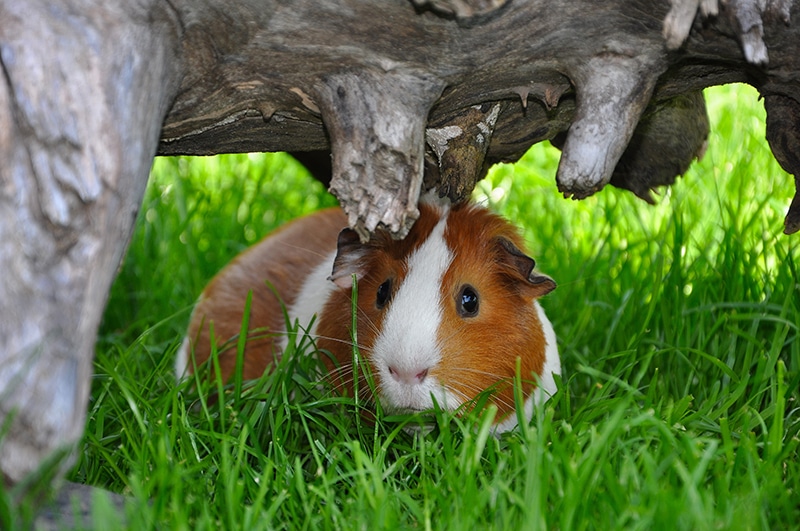
What do guinea pigs eat?
Guinea pigs have specific dietary requirements to maintain their overall health and well-being. Hay is an essential component of a guinea pig’s diet as it aids in digestion and helps maintain healthy teeth. Their diet should consist primarily of high-quality hay, fresh vegetables, and fruit like apples, blueberries, pears, carrots, and cucumber. Leafy greens such as romaine lettuce and red leaf lettuce are excellent choices. However, some vegetables, such as iceberg lettuce and potatoes, should be avoided. It’s essential to speak to your vet about your guinea pig’s diet and introduce new vegetables gradually to prevent digestive upset.
Can guinea pigs make sounds?
Yes, they can. Guinea pigs are known for their adorable and expressive sounds. They have a wide range of vocalizations that they use to communicate with their owners and each other. From squeaks and chirps to purrs and gurgling sounds, they can make quite a few different types of sounds – many of which can be quite interesting to listen to.
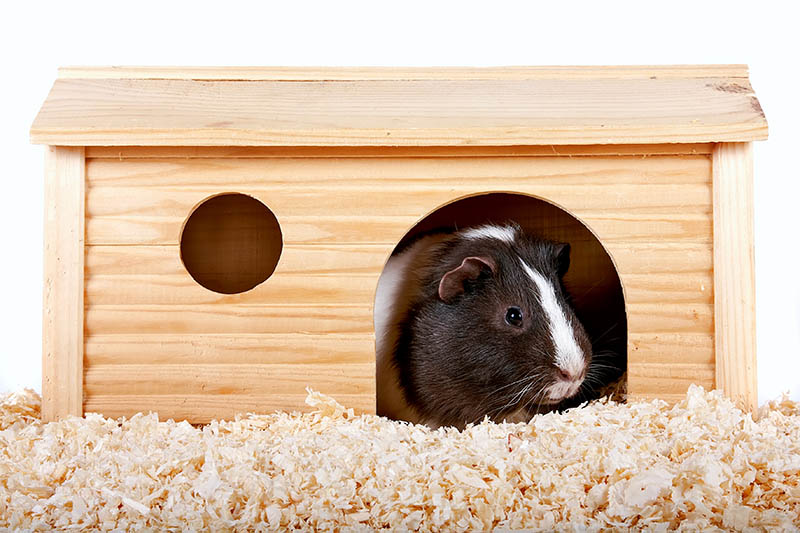
What’s the best cage size for my guinea pig?
The minimum recommended cage size for one guinea pig is 7.5 square feet, but it’s always better to go bigger if possible. Guinea pigs are active animals that require ample space to roam and explore. A larger cage allows your guinea pig to take part in some natural behaviors like running, jumping, and burrowing. It also provides enough space for essential items such as a hiding spot, food and water bowls, and a separate area for sleeping. Remember, the more space you can provide for your guinea pig, the happier and healthier they will be. Guinea pigs are highly social, so if you decide to get a companion, make sure they both have plenty of space.
Should I bathe my guinea pig?
Bathing a guinea pig is generally not necessary unless they have gotten extremely dirty or have a specific health issue that requires it. Guinea pigs are naturally clean animals and groom themselves regularly. They have a special oil on their skin that helps to keep their fur clean and healthy. However, if your guinea pig does need a bath, it’s crucial to speak to your vet first and use a gentle shampoo specifically made for them or similar animals (like rabbits). It’s also crucial to ensure that the water is warm, not hot, and that you dry your guinea pig thoroughly afterwards to prevent them from getting chilled.
How to get my guinea pig to exercise?
There are actually several ways to get your guinea pig to exercise and stay active. One effective method is to provide them with a spacious and stimulating environment. Ensure that their cage is large enough for them to move around freely, and add toys, tunnels, and ramps for them to explore and play with. Also, you can create an outdoor play area where your guinea pig can enjoy fresh air and natural sunlight. Another way to promote exercise is by engaging in interactive play sessions with your pet. You can slowly chase them around the room or use a toy for them to chase and fetch.
Wrapping Things Up
Guinea pigs may seem like they sleep with their eyes partially open, but the truth is that it is difficult to know whether they are sleeping or just resting. So, the next time you spot your guinea pig snoozing with their eyes wide open, rest assured knowing that they’re employing their natural instincts to stay vigilant while catching some much-needed shuteye.
Featured Image Credit: Shchus, Shutterstock



